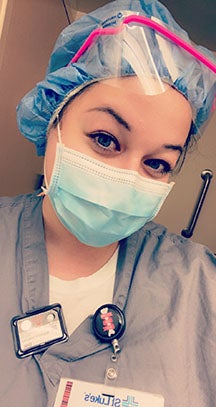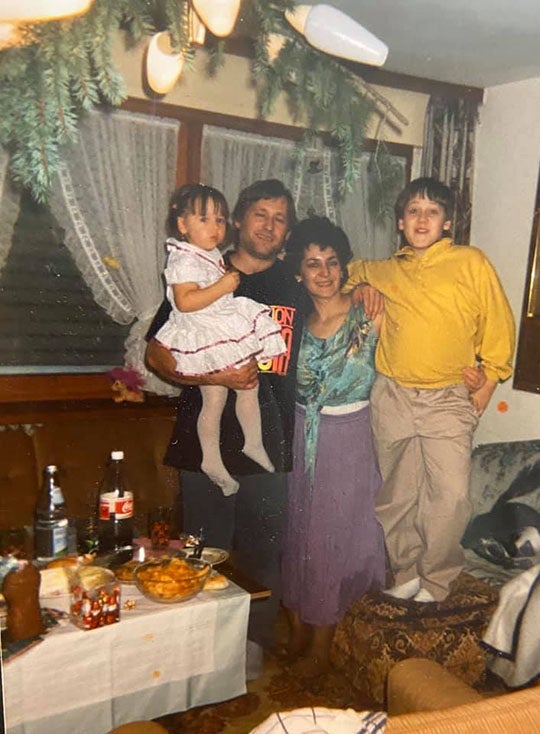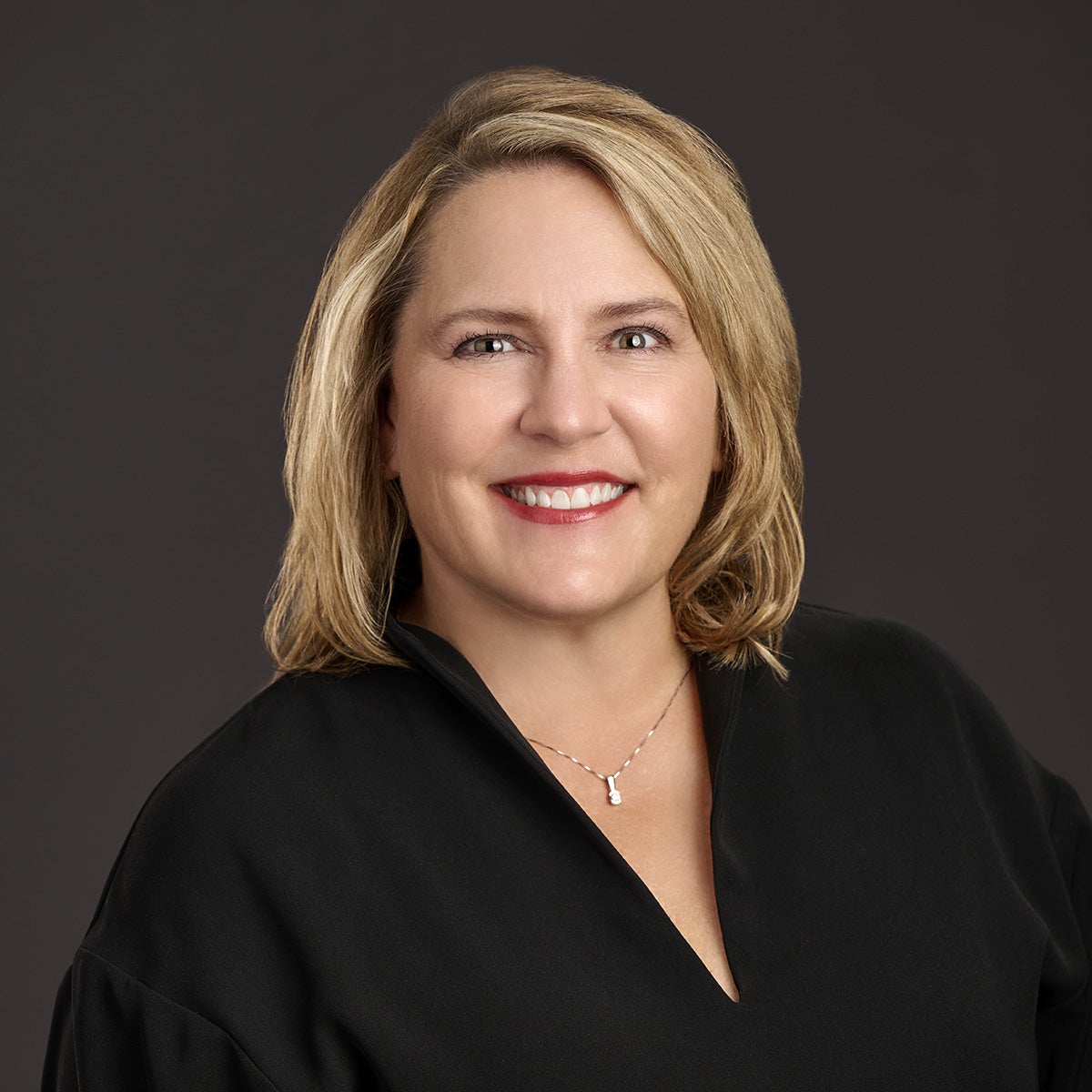Boise State is home to many unique and talented individuals who make up the fabric of our university. Each student has a varied path that led them here – from rural Idaho or across the globe – each call Boise, and Boise State home.
Idaho, and Boise have a long history of resettlement of individuals and families that have come to our local community as refugees. Boise is the home of the Agency for New Americans which is a nonprofit that has resettled over 3300 refugees from 33 countries as well as an office of the International Rescue Committee. Boise State currently has 128 undergraduate refugee students enrolled for Spring 2022.
Three of these refugee students, Irena Sisic, Fatima Alicehajic, and Darmin Hadzic, are alumni or current students in the department of radiologic sciences. Together with their families they braved the unthinkable – making a journey across the globe to escape war – all in search of a better, safer life.
Fatima’s Journey

Fatima Alicehajic’s parents were successful business owners in a small town in Southeastern Europe called Teslic. Teslic was considered a part of Bosnia and Herzegovina and since the war, it is now considered a part of Serbia. When Alicehajic was just over a year old, everything was taken from them. The Serbian military started performing ethnic cleansing of their beautiful country and its innocent people. The harsh and ugly reality is that they were raping and killing women and children that were too young to work.
Boys and men who were old enough to hold a gun were given the option to kill their own until they themselves were killed, or they would be sent to a concentration camp. As of this year, they are still finding unidentified bodies in mass graves from the war. Alicehajic’s family was lucky they acted at the first sign of trouble, but there were many families who did not.
Alicehajic had family in Germany so they knew this was going to be a safe refuge. Due to paperwork issues, Alicehajic’s parents had to split up on their journey to safety. Her mom had to stay with neighbors, and remained in hiding in a crawl space below their home. Her dad, however, started an incredibly stressful journey with Alicehajic in his arms and her nine year old brother by his side.
Had Alicehajic’s brother and dad been caught by the Serbian military, they would have been forced to do the unthinkable. Alicehajic most likely would have been killed as she would have been deemed useless at the age of one. Until the day her dad passed away, he lovingly referred to her as “his thirteen months” because it was his belief that she was the reason they made it out of Bosnia alive.
When Alicehajic was thirteen months old they were making their way out of the country when they approached a Serbian soldier who was checking passports for those boarding a bus leaving town. Normally they wouldn’t have been able to board the bus, but Alicehajic’s dad said the soldier had looked down at her “bright blue eyes” and she smiled at him joyfully so the soldier took pity on them and let them leave with the other passengers. Alicehajic’s father retold that story many times throughout her life to remind her of how he felt about the significance of that day. Fortunately, Alicehajic’s mom joined them safely in Germany a few weeks later after making the trip by herself.
Alicehajic and her family lived in Germany for about six years when President Clinton granted refuge to displaced Bosnians to the United States and her family arrived in Hayward, California.

“We could no longer stay in Germany due to their laws, and what was once our home no longer existed so we had no other option. By this time, I was fluent in Bosnian and German, my brother and I were going to school in Germany and had made close friends. We were not happy about moving to a completely new country. Our first glimpse of America was streets of gang violence, hard drugs, and break-ins. We were assigned a social worker and each started learning English and trying to start over again,” Alicehajic said.
After about a year of living in California, Alicehajic’s father worked hard enough to save money to buy a home in Idaho. He worked endless hours as a pizza delivery driver, janitor, long distance truck driver, and literally anything else he could think of to make money while he supported his family.
While living in California they met another Bosnian family, became close friends and were able to lean on each other. They heard there was a larger Bosnian community in Boise, it was safer, and much more affordable, so the two families decided to move to Idaho together.
“Boise State University offered an accessible and affordable education for me, as someone who did not want to go far from home, yet wanted a good education” Alicehajic said. “Boise State allowed me to reach my educational goals while also providing me with ample opportunity to be involved in organizations that helped me post graduation. I utilized on-campus resources to help me figure out ‘what I wanted to be when I grow up,’ build my resume, provided me with suggestions and connections for leadership opportunities and even helped guide me through the application process for the radiologic sciences program. I spent my “growing up” years at Boise State.”
Alicehajic currently works for St. Luke’s in their computerized tomography department – a place where she worked before earning her radiologic sciences degree.
“I consider myself truly fortunate to work at St. Luke’s, as I worked at the same hospital before I began the radiology program and it was my goal to work in the imaging department when I finished schooling. Whenever I walk by my old desk, I remember where I came from and how hard I worked to be where I am today,” Alicehajic said.
Become a donor to support students at Boise State.
Inspired by this story? Let's chat!
-

Heather Jauregui
Senior Director of Development